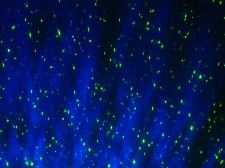
From http://alternativebroadcasting.org/archives/2007/08/20/emotional-intelligence-and-acas-adult-children-of-alcoholics/
Emotional Intelligence and ACAs (Adult Children of Alcoholics)
August 20th, 2007
Everyone in the alcoholic’s family suffers effects from the
disease. Typically everyone involved in the life of the
alcoholic and dysfunctional family has low or no emotional
intelligence. They don’t know what they think or feel, and don’t
think they have a right to. Many of the challenges facing Adult
Children of Alcoholics (ACAs) can be addressed by developing
Emotional Intelligence. Here are some examples.
[Source: Adult Children of Alcoholics World Service Organization
(http://www.adultchildren.org )
1. ACAs tend to over-react to anger and criticism, and are
afraid of authority figures.
EQ COMPETENCY: Constructive discontent.
If you’re an ACA and someone gets angry at you, you shrink
inside and shut down or panic, reacting in a way that isn’t
always appropriate to the actual real-life situation. Learning
constructive ways to deal with the emotions engendered by
disagreement and criticism are part of EQ.
Emotional Intelligence means not taking constructive criticism
personally and emotionally, but getting the message and
benefiting from it. Experiencing fear and anger, strong emotions
designed for survival, can’t be controlled, but we always have a
choice in how we respond to them.
2. ACAs often feel isolated and lonely and uneasy with other
people.
EQ COMPETENCY: Interpersonal skills, Emotional Expression and
Communication.
Isolation is one of the worst things we can do to ourselves. To
live in emotional isolation can be worse on our health than such
things as smoking and being overweight. Learning to communicate
well, and express feelings appropriately is part of the EQ
experience.
3. ACAs feel like victims when something bad happens to them.
EQ COMPETENCY: Personal Power.
Personal Power is the opposite of victim-ology. Instead of
asking “Who will take care of me?” you learn to ask, “How will I
take care of myself?” It means building confidence in your
ability to handle your life and believing that you can do it.
4. ACAs are often uncomfortable with emotional intimacy. They’re
afraid to reveal their feelings and who they are, and reluctant
to become vulnerable.
EQ COMPETENCY: Emotional Expression.
The first step in EQ is self-awareness; to become aware of your
feelings. Only then can you learn how to express them accurately
and appropriately.
5. ACAs tend to confuse pity with love, and to be more concerned
about others than they are about themselves.
EQ COMPETENCY: Interpersonal skills, Empathy.
Healthy Empathy means being able to understand where the other
person is coming from, but with respect for one’s own
boundaries. You can understand how the other person feels, but
not have to join them in the feeling. Empathy does not involve
the feeling of pity.
6. ACAs judge themselves harshly and are over-responsible. Often
they are perfectionists.
EQ COMPETENCY: Being adamantly and relentlessly self-forgiving.
Understanding that we’re human, and that we all make mistakes is
what this is all about. It takes a lot of practice for most of
us to ‘get’ this competency. It involves self-talk and learned
optimism, and managing the emotions of failures, losses,
rejections and mistakes. It isn’t good for your health, your
work, or your relationships to be a perfectionist!
7. ACAs have difficulty in identifying, understanding, and
expressing their feelings.
EQ COMPETENCY: EQ!
The cornerstone of Emotional Intelligence is self-awareness –
being able to identify and understand your feelings. If you
lived in an environment where feelings were not welcome,
denigrated, mocked, punished, ignored, denied, or lied about, it
will take some practice to be able to bring them up, identify
them, and understand them. That’s what EQ coaching is all about!
8. ACAs over-value the approval of others, and will ignore their
own values, preferences and beliefs in deference to others’.
Feeling vulnerable, they protect themselves by being overly
anxious to please others.
EQ COMPETENCY: Integrated Self, Personal Power and
Intentionality.
These competencies help us stay centered, and act with intent,
based on our own values, preferences, feelings, thoughts, and
beliefs. When we own and claim our Personal Power, we can aim to
get along with others with good will, but are no longer driven
to please someone else at our own expense.
9. ACAs tend to be addicted to excitement. They are risk seekers
who prefer constant upset to workable solutions.
EQ COMPETENCY: Understanding, accepting and processing emotions,
operating with Intentionality, and often being able eventually
to modulate emotions.
EQ means learning where emotions come from and how they operate
and being able to make choices instead of knee jerk reactions.
We learn the different ‘feel’ or emotions from the reptilian
brain and the limbic brain, and when and how to blend this with
the thinking brain, the neocortex. Understanding where the need
for excitement comes from allows us to manage it, and avoid
chaotic situations that self-sabotage. EQ is all about workable
solutions and how to achieve them.
10. ACAs are imprisoned by childhood reactions.
EQ COMPETENCY: Emotional Intelligence.
Emotional Intelligence means understanding where emotions come
from, and being able to experience them, consider them, learn
from them, and then make a decision to respond (or not), instead
of reacting without thinking. Developing your Emotional
Intelligence will help you avoid being entrapped in any
unrealistic, rash or un-reasoned reaction.
Check out the Orange County ACA website at:
Orange County Adult Children











